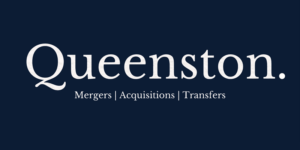
Will Your Business Die With You?
By Jerry Butler
Lack of proper planning means you are messing with you and your estate. If you “have” to sell your business will fetch half of today’s value – if you’re lucky.
- Equity and Income
Every advisor has two forms of income. One is employment income and the other is a return on the equity of the business. The current owner can sell part or all of their equity but continue to earn an employment income. Almost all deals will have the vendor negotiating an employment contract.
- Clients want to know what happens to them
Chances are that clients are already asking the advisor what happens if they are not around. A Plan will be received positively by clients.
- Business Structure
Many advisors have not properly structured their business to take advantage of the benefits of a share sale. Either they are not incorporated or the corporation is off side. Now may be the time to start getting ready to transition. Selling is a process. Often the initiation of a buyer starts the preparation of getting ready to sell.
- What stage is their business?
As advisors age so do their clients. In addition, most senior advisors are slowing down and their business is probably not growing. If your clients are aging and your business is “mature” it is becoming less valuable every single year.
- A Succession Plan is not an Exit Strategy
Most advisors think they sell when they are ready to exit the business. This is not the case. Every deal Queenston has done has given the seller an employment contract. Many sellers continue to earn an above average income.
- Monetize their largest asset
Many advisors have personal debt and have the opportunity to wipe that debt out or increase their liquid savings. If an advisor sells half of his business and brings in someone full of pee and vinegar they could easily double the business ‘ size. This means in 5 – 7 years when the senior advisor exits he gets half of twice as much.
- Selling as a growth strategy
If an advisor sells half of his business and brings in the right partner the business could double in value. This means in 5 – 7 years when the senior advisor exits, he gets half of twice as much. The result is 50% of current value plus 50% of twice as much. This is a great growth strategy and win-win-win.
- Diversification
Most advisors largest asset is their business. Many do not maximize their retirement savings. They would not let their clients have 60 – 70% of their net worth in one asset. Yet their own portfolio is heavily weighted in one asset.
- Continuity Plan
What happens to your business in the case of your disability or death? An agreement for someone to buy or service your clients until your business is sold is a Continuity Plan. This contract protects the value of your business until you can return to work or if you cannot return to work.
If the senior advisor cannot work or does not want to work than they are protecting the value of their largest asset. Everything is in place. A buyer and a fair price is a win-win-win again.
An Exit Strategy is 90% an emotional decision. The industry has a problem in that advisors are not aware of their options. The distribution channel is doing NOTHING to change that. Buyers are doing a better job of educating senior advisors than any other source.

